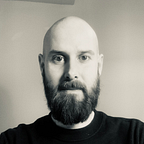A Learnings Database: Kaizen and a Culture of Continuous Improvement
The idea of ‘growth’ is really exciting because of the opportunities that come with it. But it’s also a risk because scaling can happen too quickly.
One way IMHO to meet this challenge head-on is by continually improving what you do: it means that change and adaptation are baked into the culture.
In production, that means getting better and better at planning, problem-solving, and understanding what people need, right from the get-go.
I discovered Kaizen during my first dive into non-project related project management. It really struck a chord and has been a behind-the-scenes driver for a while now. It’s kept me trying to find value for teams, users, clients and businesses over quite a few years, which has been really valuable to me.
So, a bit more about it. It’s widely translated as “continuous improvement”. Kaizen (literally, “good change”) is a lean business practice that focuses on applying small, daily changes to create major improvements over time. Problems are seen as opportunities to improve, which is an incredibly valuable mindset.
Kaizen is one of several management techniques that first emerged in Japan after World War II as a result of a collaboration between some US business consultants and Japanese companies, to improve manufacturing. Its philosophy and practice were introduced to the West by Masaaki Imai in his book Kaizen: The Key to Japan’s Competitive Success, in 1986.
Kaizen means workers at all levels of an organisation participate in improving the business, based on their observations and experience, by offering their ideas and suggestions. It is usually carried out by an individual, a group of people, or an improvement suggestion system.
I have created a ‘Retrospective Learnings Database’ as a Kaizen-inspired initiative that’s now being used by our team, to good effect, allowing everyone to document and share their learnings on projects.
The more we embrace our potential for positive change and support every member of the team to participate in that process, the better we can scale while maintaining the quality of service to our clients. It takes time to change habits, but that shouldn’t be a problem, our teams move pretty fast.
